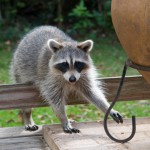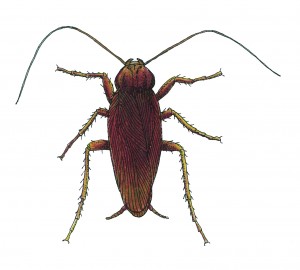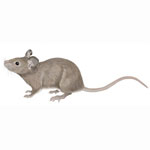READY TO GET STARTED?
REQUEST A FREE ESTIMATE
Fill out the form below or call (888) 466-7849 for a free, no-obligation estimate.
Hort oil can be beneficial to your trees and shrubs to control pests. Many traditional pest control solutions can be harmful to plants. Advantages of using oil are safety, effectiveness, and limited effects on insects that are beneficial to plants.
Hort oil is often used in the winter months to control mites, aphids, caterpillars, and scale insects that tend to make a home on plants during this time of year. Although most commonly used in the winter, hort oil can also be used in the summer time to control a host of other insects and mites. Hort oil can also protect plants from diseases like powdery mildew and some aphid-transmitted viruses.
You should be aware that there is a small chance that it could harm certain plants, especially those in need of water. Oils can stain surfaces of dark colored house plants. As with any pest control solution, be sure to read instructions carefully and follow all directions.
Sensitive Plants:
Source: http://www.ext.colostate.edu/pubs/insect/05569.html
 According to a recent article by the Wall Street Journal, wildlife damage to crops, landscaping and infrastructure now exceeds $28 billion a year. The article addresses the benefits to the increase in wildlife but also the damage they can cause and the effect it has on our local economies.
According to a recent article by the Wall Street Journal, wildlife damage to crops, landscaping and infrastructure now exceeds $28 billion a year. The article addresses the benefits to the increase in wildlife but also the damage they can cause and the effect it has on our local economies.
This year, Princeton, N.J., has hired sharpshooters to cull 250 deer from the town’s herd of 550 over the winter. The cost: $58,700. Columbia, S.C., is spending $1 million to rid its drainage systems of beavers and their dams. The 2009 “miracle on the Hudson,” when US Airways flight 1549 had to make an emergency landing after its engines ingested Canada geese, saved 155 passengers and crew, but the $60 million A320 Airbus was a complete loss. In the U.S., the total cost of wildlife damage to crops, landscaping and infrastructure now exceeds $28 billion a year ($1.5 billion from deer-vehicle crashes alone), according to Michael Conover of Utah State University, who monitors conflicts between people and wildlife.
Click here to read the whole article.
For wildlife removal or exclusion needs in your home or business, call Northwest. A Wildlife Control representative will inspect your property for evidence of wildlife and will determine the points of entry being used by these critters to get into your structure. A customized plan will be developed to get the immediate nuisance under control and to seal off any known points of entry.
Source: http://online.wsj.com/article/SB10001424052970204846304578090753716856728.html#
 American Cockroaches, or the Palmetto Bug, have been making appearances in homes all over the South recently. Reddish brown in color with a yellow marking, palmetto bugs can grow to be 1.5 to even 2 inches in length. These roaches have wings but are not good flyers.
American Cockroaches, or the Palmetto Bug, have been making appearances in homes all over the South recently. Reddish brown in color with a yellow marking, palmetto bugs can grow to be 1.5 to even 2 inches in length. These roaches have wings but are not good flyers.
Cockroaches are found in residences and commercial buildings…anywhere that has food and water sources. Homes, restaurants, bakeries, grocery stores, food processing plants, and even hospitals are common places that cockroaches can be found. Kitchens, food storage areas, and basements are the usual areas roaches are found in because of food and water. They can be found in dark, moist places like basements, drains, tubs, and sewers looking for water.
Keep roaches from invading your structure by:
Roaches can be difficult to control once they have infested your home. Call the professionals for a quick and efficient way to get roaches out of your home.

A: It is a frustrating situation to be in when you are concerned about problems from another source that you do not have any control over!
All animals need three items in order to be successful: food, water and shelter. If you can eliminate these, in most cases you can help control any issue. It sounds as if cutting the grass from the neighbor’s yard took away the shelter and food causing them to search for these sources elsewhere.
We suggest that if you have any outdoor feeders for birds or squirrels to move them away from your home. Also, if you have any water sources such as fountains, bird baths, etc, it would be helpful to move them as far away from the home as possible. Additionally, make sure that any pet food, bird seed or grass seed is stored in a tightly concealed, rodent proof container.
If you find that you notice evidence of animals or rodents in or around your home, call Northwest Exterminating. A pest prevention program or wildlife control program may be needed to remove the unwanted visitors from your home.
A: It is a frustrating situation to be in when you are concerned about problems from another source that you do not have any control over!
All animals need three items in order to be successful: food, water and shelter. If you can eliminate these, in most cases you can help control any issue. It sounds as if cutting the grass from the neighbor’s yard took away the shelter and food causing them to search for these sources elsewhere.
We suggest that if you have any outdoor feeders for birds or squirrels to move them away from your home. Also, if you have any water sources such as fountains, bird baths, etc, it would be helpful to move them as far away from the home as possible. Additionally, make sure that any pet food, bird seed or grass seed is stored in a tightly concealed, rodent proof container.
If you find that you notice evidence of animals or rodents in or around your home, call Northwest Exterminating. A pest prevention program or wildlife control program may be needed to remove the unwanted visitors from your home.